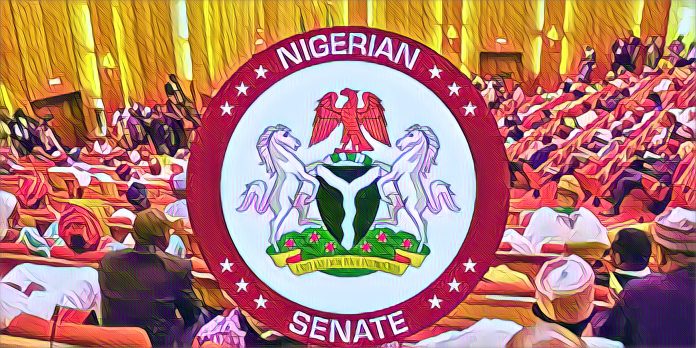Nigerian lawmakers are locked in a heated debate over a proposed bill that would outlaw open grazing and establish cattle ranches. The legislation, titled “An Act to Establish the National Animal Husbandry and Ranches Commission for the Regulation, Management, Preservation and Control of Ranches throughout Nigeria; and for connected purposes 2024 (SB. 466),” has sparked strong emotions on both sides of the aisle, reflecting the deep divisions surrounding the long-standing conflict between farmers and herders in the country.
Proponents Push for Ranches, Citing Economic Devastation
Supporters of the bill, led by Senator Titus Zam (APC, Benue North-West), argue that it is a critical step towards ending the deadly violence that has plagued Nigeria for years. Senator Zam painted a grim picture of the conflict’s economic toll, highlighting that it has displaced millions of Nigerians and inflicted billions of dollars in losses.
“This crisis has cost Nigeria a staggering $3.5 million, nearly half of our internal revenue,” Senator Zam said. “Furthermore, reports indicate that over 4,000 lives have been tragically lost since 2016 due to farmer-herder clashes. The displacement of over 5 million people, particularly in the Middle Belt region and other parts of Northern Nigeria, is another devastating consequence.”
Senator Zam emphasized the urgency of the situation, arguing that open grazing is no longer sustainable and a more practical solution is needed. Also, he pointed to neighboring West African nations like Mauritania and Mali as successful examples. These countries have implemented legislation to regulate herding practices and establish ranches, leading to a significant decrease in farmer-herder conflicts.
Opponents Raise Constitutional and Practical Concerns
However, the bill has faced fierce opposition from some senators who argue that it is both unconstitutional and impractical. Concerns center around potential violations of the right to freedom of movement enshrined in the Nigerian Constitution. Senator Danjuma Goje (APC, Gombe Central) expressed his disapproval of restricting herders to ranches in their states of origin.
“We need to be more magnanimous,” Senator Goje argued. “Confining these herders will not solve the problem. They are Nigerian citizens who deserve access to education, healthcare, and other basic necessities, just like everyone else.”
Another point of contention is the feasibility of establishing ranches in areas with limited water resources. Senator Adamu Aliero (PDP, Kebbi Central) argued that a more comprehensive approach is needed, one that addresses the root causes of the conflict rather than solely focusing on restricting herding practices.
The passionate debate over the grazing bill exposes the multifaceted nature of the farmer-herder conflict in Nigeria. Competition for dwindling land resources and historical tensions between nomadic herders and settled farmers have fueled this ongoing struggle.
Next Steps: Negotiations and Potential Amendments
The Senate passed the bill for a second reading, indicating a willingness to move forward with the legislation. However, the bill now faces referral to relevant Senate committees, including Agriculture, Judiciary, and Legal Matters, for further review and potential amendments. This period will likely involve consultations with stakeholders, including farmers, herders, and experts, to address the concerns raised by opponents and find a solution that is both constitutional and effective in curbing the violence.
The outcome of these discussions remains uncertain. However, one thing is clear: resolving the farmer-herder conflict requires a nuanced approach that addresses the needs of all parties involved.
Source: Vanguard



